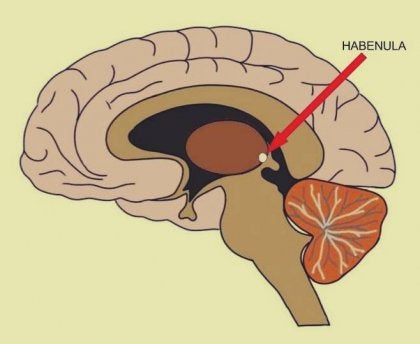Disappointment and Your Brain - Why It Hurts


Written and verified by the psychologist Valeria Sabater
We’ve all wondered why a let down hurts so much. Don’t be too surprised to know that disappointment significantly alters the balance of that neuronal universe contained within your brain. So much so, that neurologists say that the mechanisms of depression also share processes and structures with those responsible for disappointment.
From a neurochemical point of view, disappointment is almost the same as frustration. We also know that these two are possibly the emotional realities we experience almost on a day-to-day basis. You feel them when your computer suddenly freezes, just when you need it most. For example, you’re disappointed when someone you’re looking forward to meeting cancels an appointment.
You get frustrated when your car refuses to start and when you don’t receive an answer to that job you applied to. Your daily life is full of frustrations and disappointments. Although some are innocuous and others severe, they all make an impact on you. Just like those from meaningful people who fail you at any given time.
Nevertheless, neuroscientists discovered something obvious recently. That a neuronal “jolt” happens before every disappointment. There’s a sudden decrease in serotonin, dopamine, and endorphins. So, all those molecules responsible for your well-being momentarily leave your brain.
“Expectation is the root of all heartache.”
-William Shakespeare-
Disappointment makes your brain hurt

Jean Paul-Sartre said that every dreamer is doomed to live a great number of disappointments. There are times when you build high expectations. Who hasn’t placed in another person’s pockets too many of our desires, ideals, and even excessive virtues? People fail us, it’s true, but it’s also true that we’re equally disappointing. That we’re as capable of disappointing others as they are of disappointing us.
This psychological reality is part of life and, yet, our brain still doesn’t process it well. This is basically because social and emotional principles rule this organ above all and it always seeks safety. It “wants” to feel a part of something or someone in a stable and predictable way. For example, if you have a good friend, you hope the friendship will last forever. You hope your significant other is sincere. You want to feel that there’s no possibility of lies and betrayals.
However, that ideal of security you have could fall apart at a given moment. Next, we’ll explain the reasons why a disappointment hurts so much, according to neuroscience.
The habenula: The brain’s disappointment center

Roberto Malinow, a neuroscientist at the University of California in San Diego, conducted a study with his team to discover the complex mechanism of disappointment. Something they were able to demonstrate is the great involvement of the habenula in processes such as disappointment and depression.
Thus, when you’re disappointed, glutamate and GABA are immediately released into the habenula. If the brain sends a high amount of these neurotransmitters, the feeling of disappointment will be greater. That is, your brain interprets the impact of the experience and modulates the intensity of your emotional pain.
Also, the feeling of frustration or annoyance for not achieving something or for making mistakes is also processed in this tiny and ancient region of the brain of the epithalamic nucleus.
Why does disappointment hurt so much?
Most of us are familiar with disappointment. It hurts emotionally and physically. We may notice some tiredness, heaviness, numbness and the feeling that the world is going too fast while we try to process a certain disappointment.
So, why does it happen? The data on this is as striking as it’s peculiar. We know that your body releases endorphins to relieve pain as much as possible when you receive a blow or cut or burn yourself. Your brain reacts instantly to the message sent by your receptors in regard to the presence of a physical injury.
However, the same doesn’t apply to psychological “wounds”. Even though your brain interprets disappointment as an impact against emotional balance, it doesn’t respond with endorphins. Instead, on many occasions, you end up somatizing the frustration as physical pain, migraines, and muscular tension.
How your brain deals with disappointment

Neurologists point out that the basic reason why a disappointment hurts so much is that it processes in the limbic system. This structure of your brain is the most primitive and linked to your emotions. Most of the times, when you suffer a setback or when someone fails you, you’re disappointed by it. You filter those experiences in a purely emotional way.
One way to reduce the impact of these experiences is to direct them towards your cerebral cortex. That is, you must reason them. Not only that, you must focus on them from a more objective point of view. It’s clear that it isn’t easy. Not when you feel betrayed and the trust that you value so much falls apart.
However, you must do it. You can work on it by controlling negative thoughts and by not looking for guilty parties. Do it also by adjusting your expectations and by being more realistic and accepting what you can’t control. After all, disappointments are seldom forgotten but you’ll surely overcome them.
You can live with disappointment knowing what happened, but also knowing that nothing is more important than moving forward. You’ll still have great stories to write.
We hope you’ve enjoyed this article! If you did, you might also enjoy this one on following your intuition after a disappointment.
All cited sources were thoroughly reviewed by our team to ensure their quality, reliability, currency, and validity. The bibliography of this article was considered reliable and of academic or scientific accuracy.
- Kaye, A., y Ross, DA (2017). La Habenula: Oscuridad, Decepción Y Depresión. Psiquiatría Biológica , 81 (4), e27 – e28. https://doi.org/10.1016/j.biopsych.2016.12.004
This text is provided for informational purposes only and does not replace consultation with a professional. If in doubt, consult your specialist.








